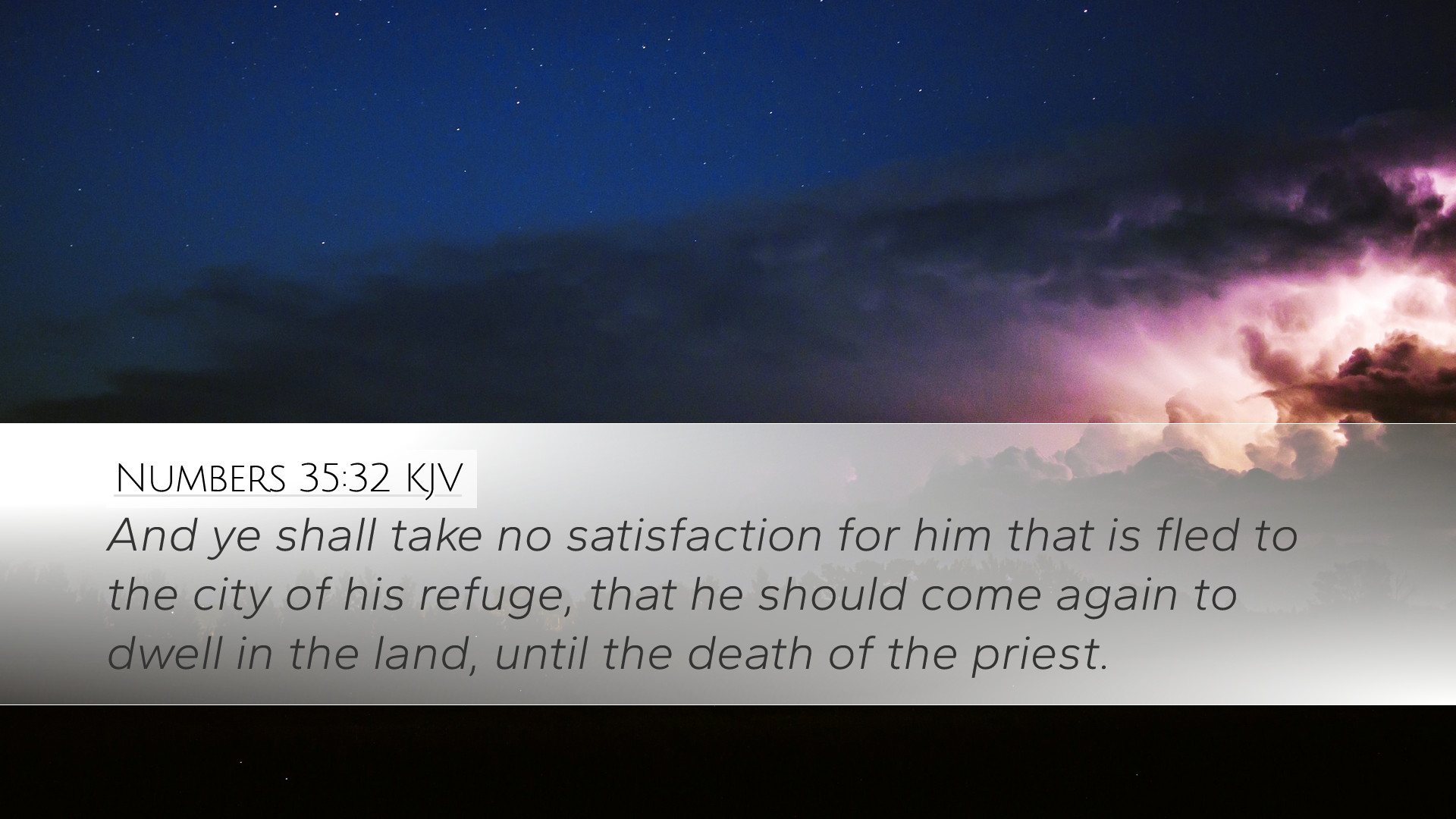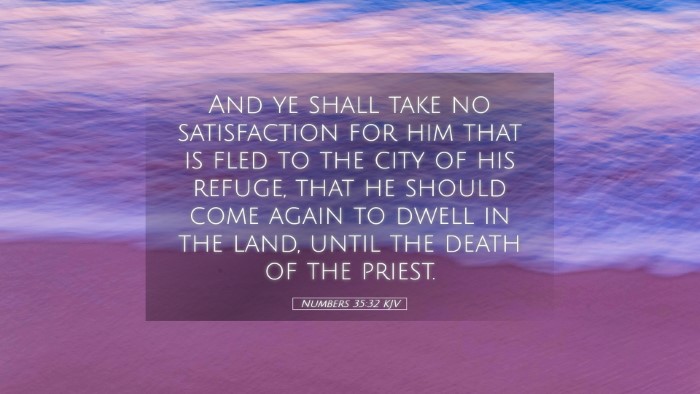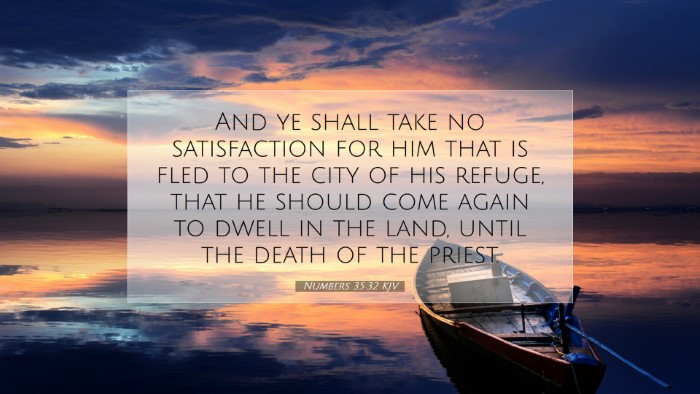Commentary on Numbers 35:32
Verse Text: "And ye shall take no satisfaction for him that is fled to the city of his refuge, that he should come again to dwell in the land, until the death of the high priest."
Introduction
This verse, part of the laws concerning cities of refuge, offers profound insights into justice, mercy, and the value of life within the framework of God's law. Various commentaries provide rich theological reflections on its implications for justice and the nature of refuge and redemption.
Theological Insights
1. Understanding the City of Refuge
According to Matthew Henry, the cities of refuge were established as a provision for individuals who accidentally committed manslaughter, enabling them to escape the avenger of blood. These cities reveal God's mercy, as they allowed the unintentional offender a means of protection, signifying that justice must be tempered with compassion.
2. The Role of the High Priest
In Albert Barnes' interpretation, the death of the high priest symbolizes a significant point of transition. Until this event, the guilty individual remains in a state of protection. The high priest, as a representative of divine mercy, indicates that release from guilt and the possibility of return can only occur through the sacrificial principle, which is ultimately fulfilled in Christ.
3. The Concept of Atonement
Adam Clarke provides a deep examination of the atonement in relation to this verse. He indicates that the death of the high priest can be likened to the death of Christ, who provides ultimate refuge and reconciliation with God. This point reinforces the notion that true atonement requires a sacrificial act, which leads believers to reflect on their own need for divine mercy.
Practical Applications
1. The Call for Justice and Mercy
As seen through the prism of this verse, pastors and theologians can contemplate how churches today serve as cities of refuge for those who have fallen into sin. The balance between upholding justice and offering mercy is critical in ministry, allowing individuals to find solace and rehabilitation within the faith community.
2. Understanding Accountability
This verse teaches that although refuge is available, accountability is also necessary. The concept suggested by Clarke of remaining in the city until the high priest's death indicates that believers must not take lightly their repentance and need for accountability in their spiritual lives. This reflection prompts spiritual leaders to guide their congregants toward a deeper understanding of their relationship with God and the sacrificial love of Christ.
Conclusion
Numbers 35:32 serves as a poignant reminder of God's justice intertwined with His mercy. The imagery of the city of refuge encapsulates the essence of atonement and the protective love of God. As ministers and scholars consider its implications, they are urged to reflect on their role in promoting a balance of justice and mercy within their communities, echoing the eternal truths of Scripture.


